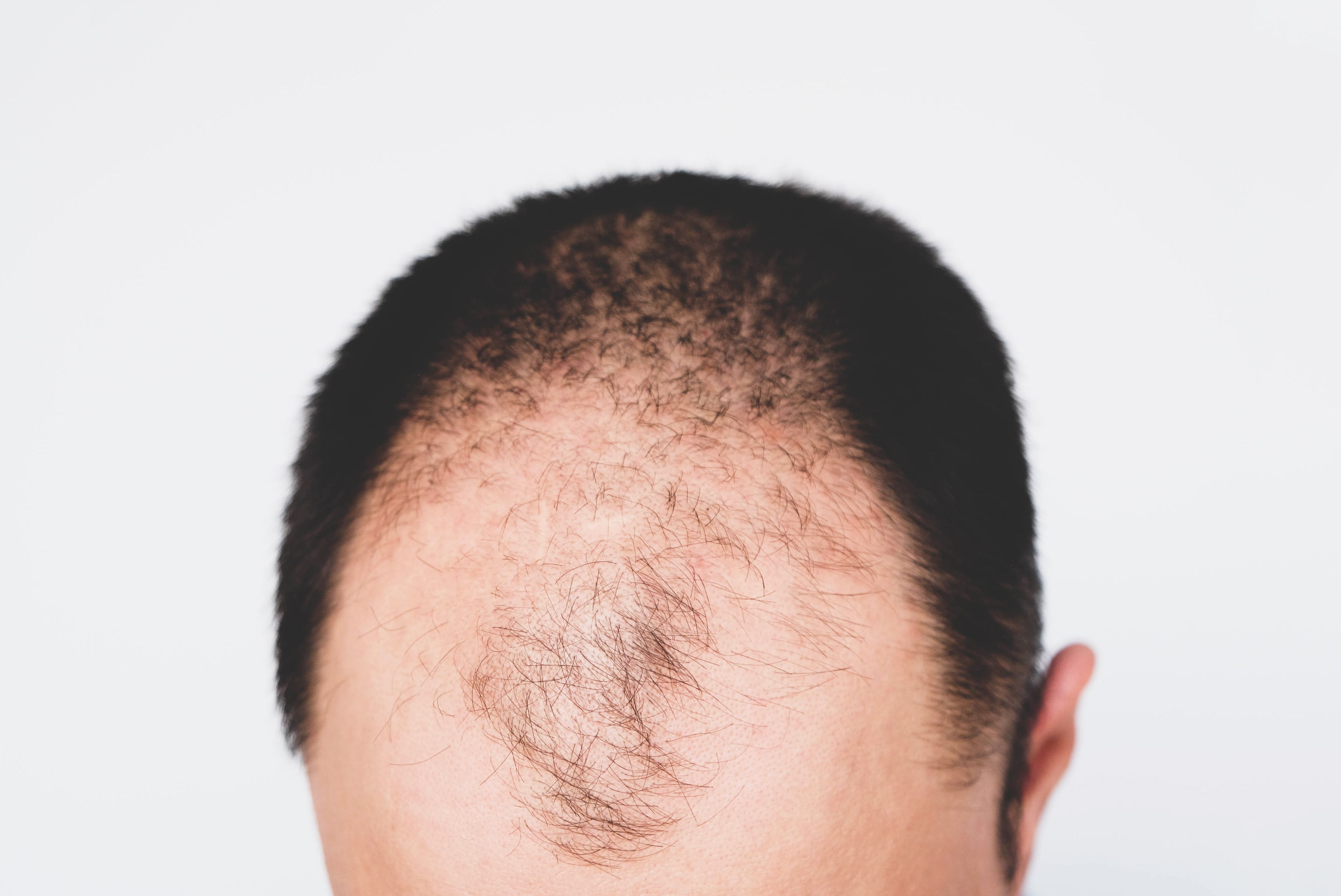- Case-Based Roundtable
- General Dermatology
- Eczema
- Chronic Hand Eczema
- Alopecia
- Aesthetics
- Vitiligo
- COVID-19
- Actinic Keratosis
- Precision Medicine and Biologics
- Rare Disease
- Wound Care
- Rosacea
- Psoriasis
- Psoriatic Arthritis
- Atopic Dermatitis
- Melasma
- NP and PA
- Skin Cancer
- Hidradenitis Suppurativa
- Drug Watch
- Pigmentary Disorders
- Acne
- Pediatric Dermatology
- Practice Management
- Prurigo Nodularis
- Buy-and-Bill
News
Article
Finasteride and Hydroxychloroquine Deemed Equally Effective in Treatment of Frontal Fibrosing Alopecia
Author(s):
Researchers compared the efficacy of the 2 modalities and found that they were equal in safety, efficacy, and tolerability.
When comparing treatment modalities finasteride and hydroxychloroquine, researchers Saber et al found that both were equally effective, safe, and well-tolerated in patients with frontal fibrosing alopecia (FFA), according to a study1 published in the Journal of Cosmetic Dermatology.
Iryna/Adobe Stock

According to researchers, FFA lacks consensus on the ideal therapeutic and treatment approaches for the condition. Furthermore, they noted that the vast majority of information regarding FFA treatment has stemmed from case reports and studies of a retrospective, observational nature. They sought to compare finasteride, a first-line systemic treatment, and hydroxychloroquine, an immunosuppressive drug.
The randomized, open-label trial was conducted at a single study center between June 2020 and February 2023. Thirty-eight patients with FFA were evaluated for participation; in total, 34 patients with FFA met criteria, consented, and underwent randomization following a thorough physical examination. Patients with a history of sensitivity to either treatment modality or who had a history of treatment with systemic treatments within the previous 3 months were excluded from participation, among other criteria.
At baseline, all patients were assessed using the Frontal Fibrosing Alopecia Severity Score (FFASS), as well as photography and trichoscopy. Evaluation with FFASS and trichoscopy was conducted again at 3- and 6-months post-treatment initiation, while photography was used at baseline and again after treatment. Researchers also utilized the Global Aesthetic Improvement Scale (GAIS) to determine patients’ degree of improvement.
Of the 34 included participants, 18 were randomized to receive treatment with 2.5 mg offinasteride on a once-daily basis, while 16 were assigned to be treated with 200 mg of hydroxychloroquine on a twice-daily basis, each for a duration of 6 months. Additionally, all patients received the same topical treatment, including either pimecrolimus, mometasone, and monoxidil.
As a result, both treatment groups underwent significant rates of improvement from baseline to 3 months and from 3 months to 6 months of treatment. At baseline, patients assigned to receive finasteride had an average FFASS of 8.84. By month 3, this had decreased to 7.44. At month 6, it decreased to 6.67. In patients assigned to receive hydroxychloroquine, the average baseline FFASS was 10.92. At month 3, it was 8.93, and at month 6, it was 8.14. Researchers noted that while improvement was seen in both groups, there was no significant difference in efficacy between the two.
Furthermore, there was no significant difference in trichoscopic signs, total trichoscopic score, and GAIS scores between the two treatment groups. During the 6-month trial period, no serious adverse effects were reported.
“Finasteride and hydroxychloroquine are equally effective, safe, and tolerable to patients over 6 months of treatment for FFA,” according to study authors Saber et al. “Thus, in patients for whom finasteride is contraindicated or causes side effects hydroxychloroquine may be a good choice. Finally, always keep in mind that the best result is achieved with combination treatment.”
Reference
- Saber M, Farokhshahi M, Naeini FF, et al. Clinical effectiveness of finasteride versus hydroxychloroquine in the treatment of frontal fibrosing alopecia: A randomized controlled trial. J Cosmet Dermatol. Published online September 10, 2023. https://doi.org/10.1111/jocd.15993





